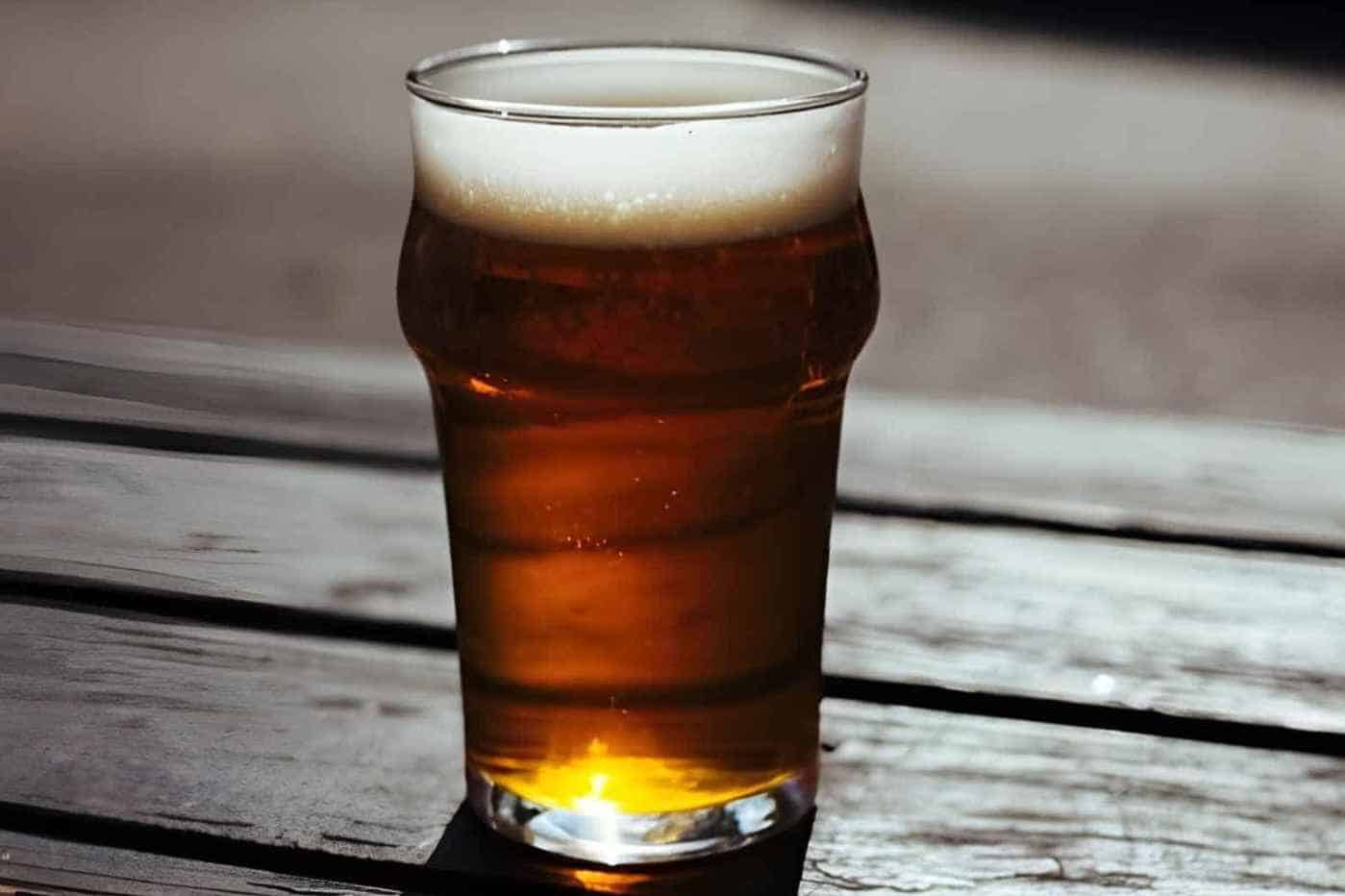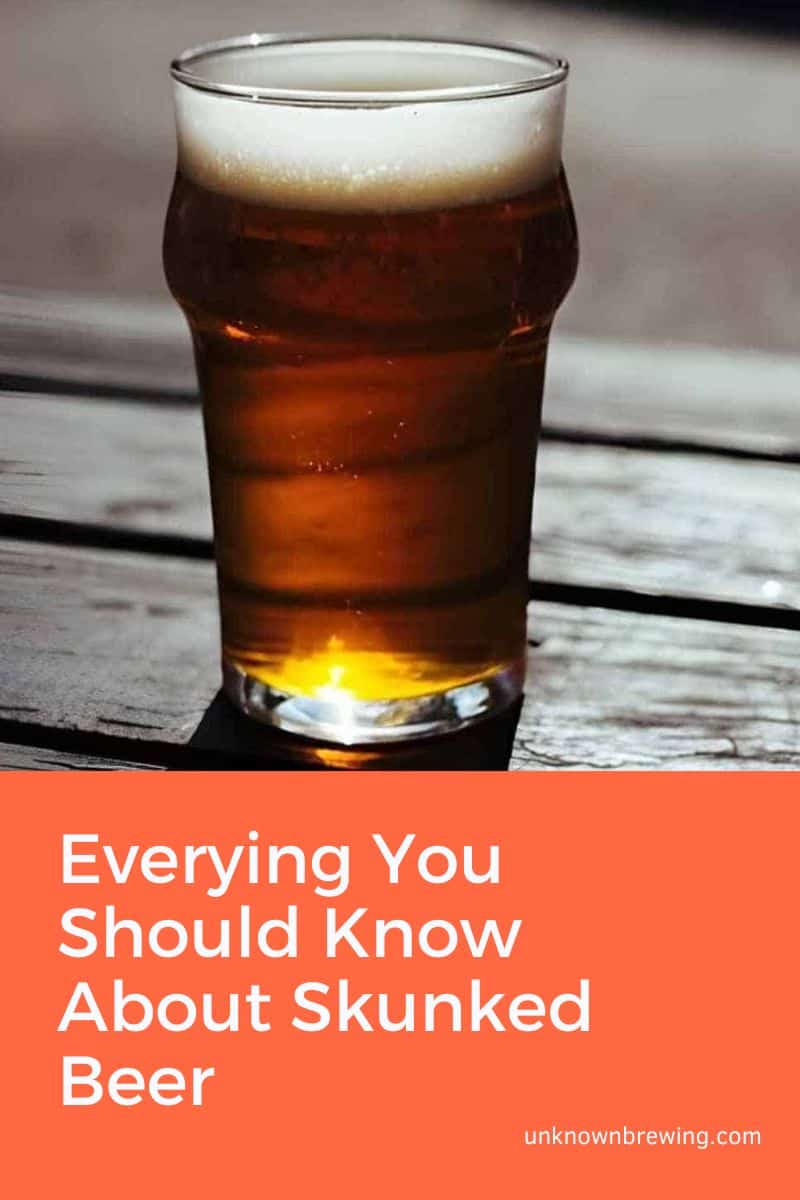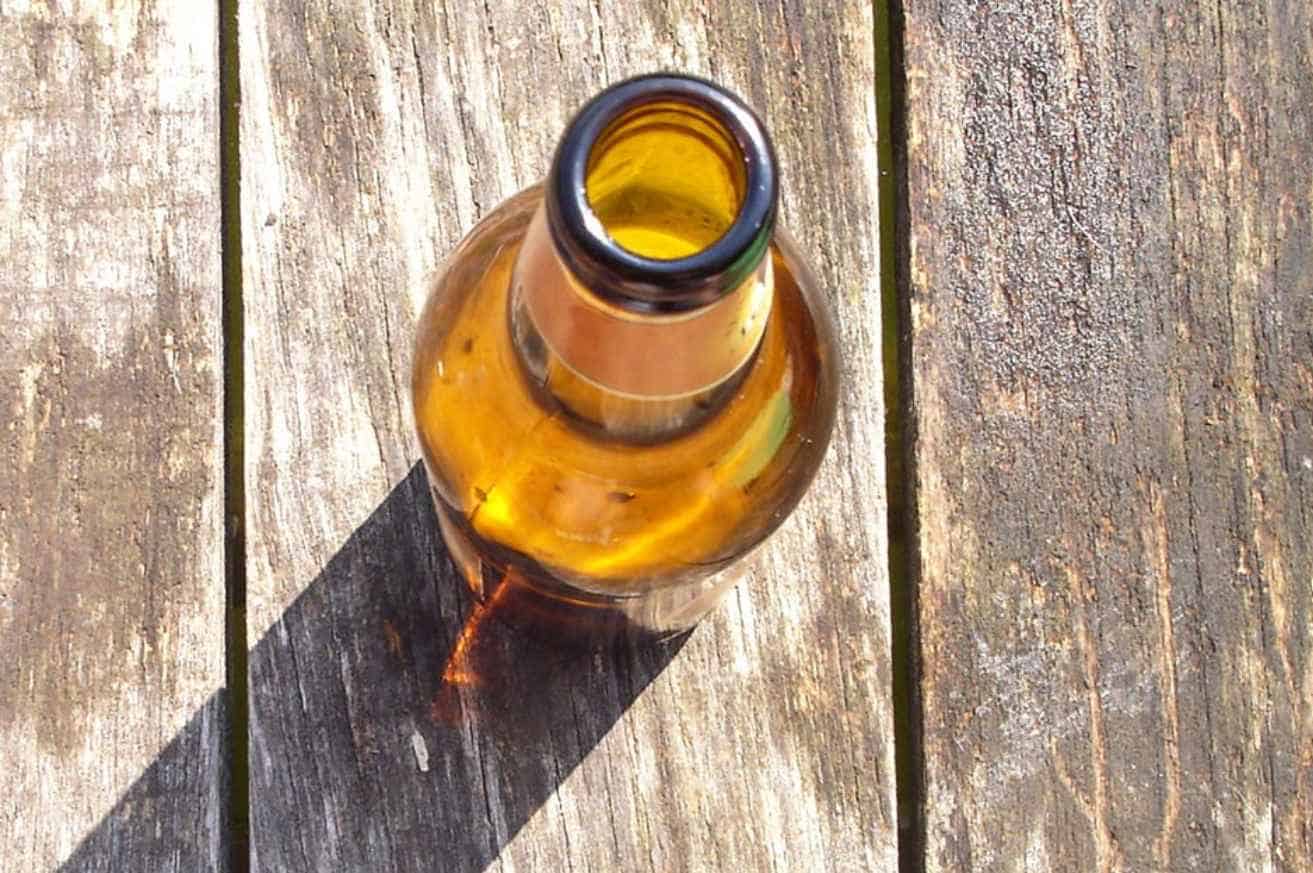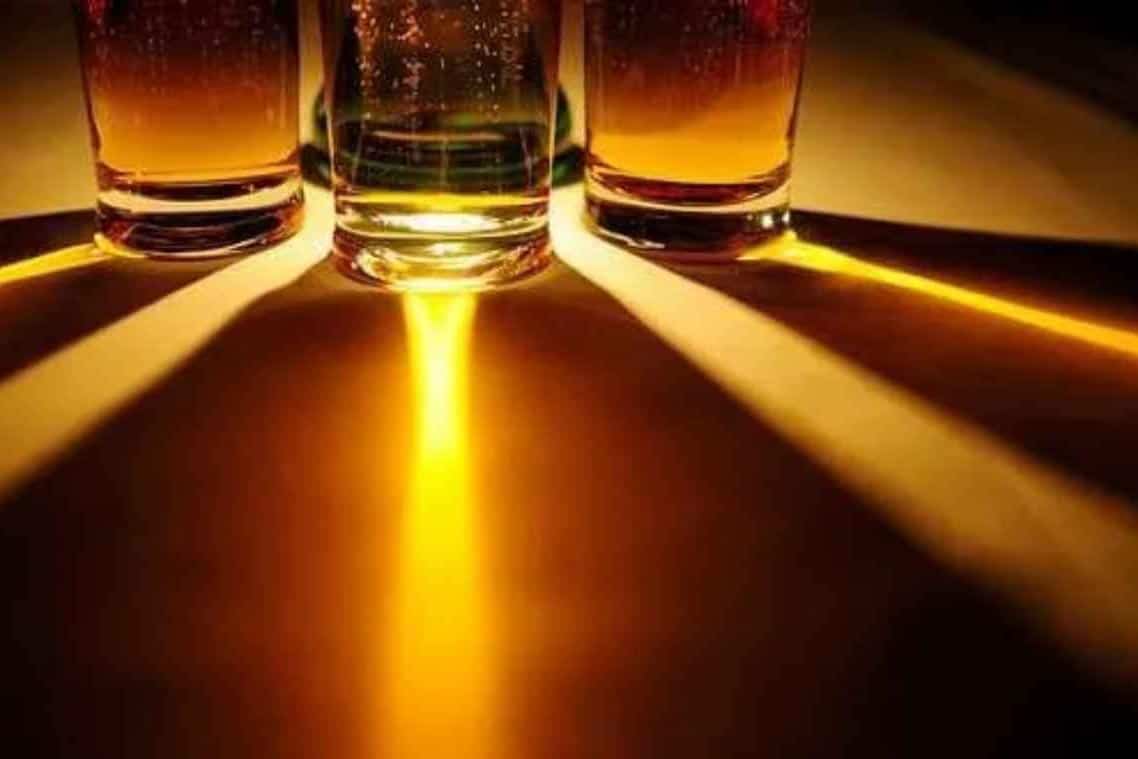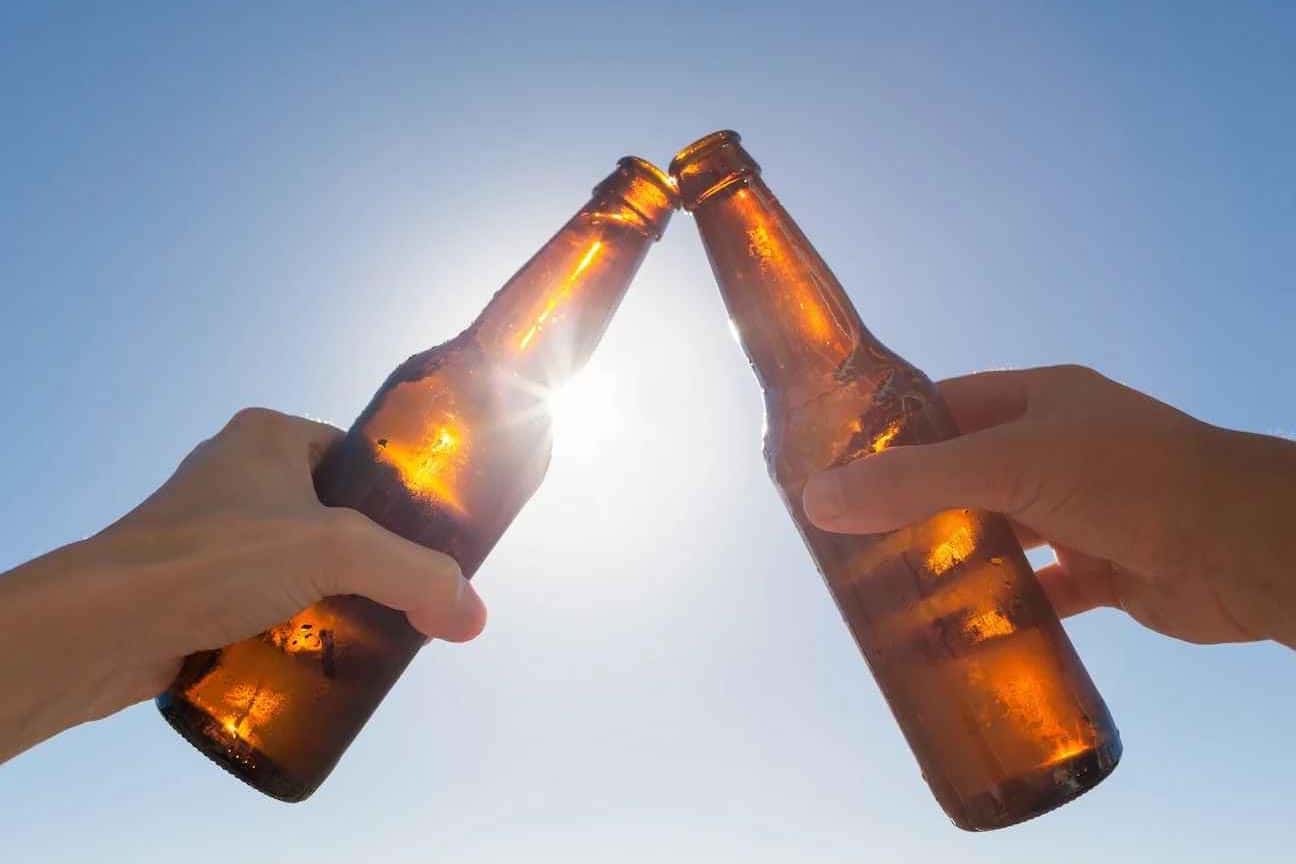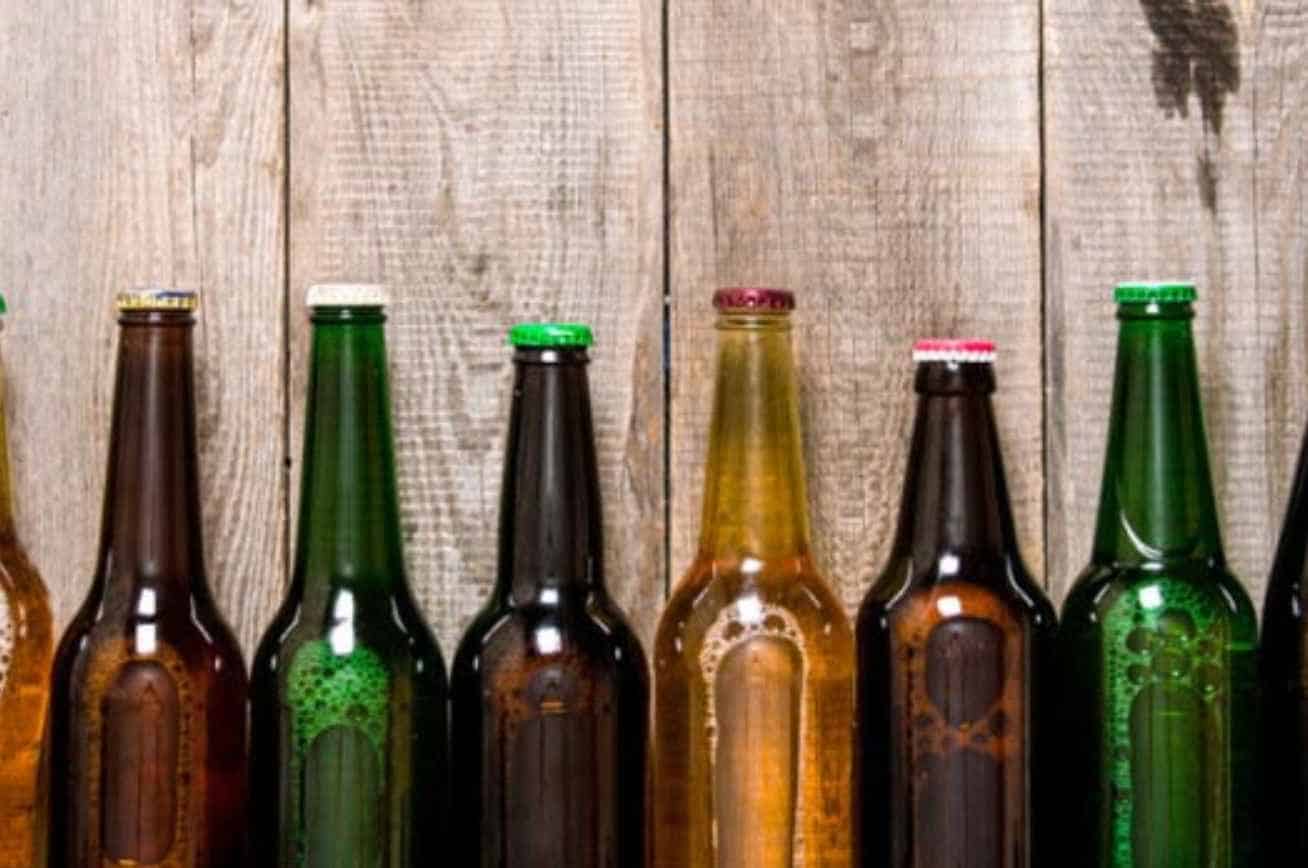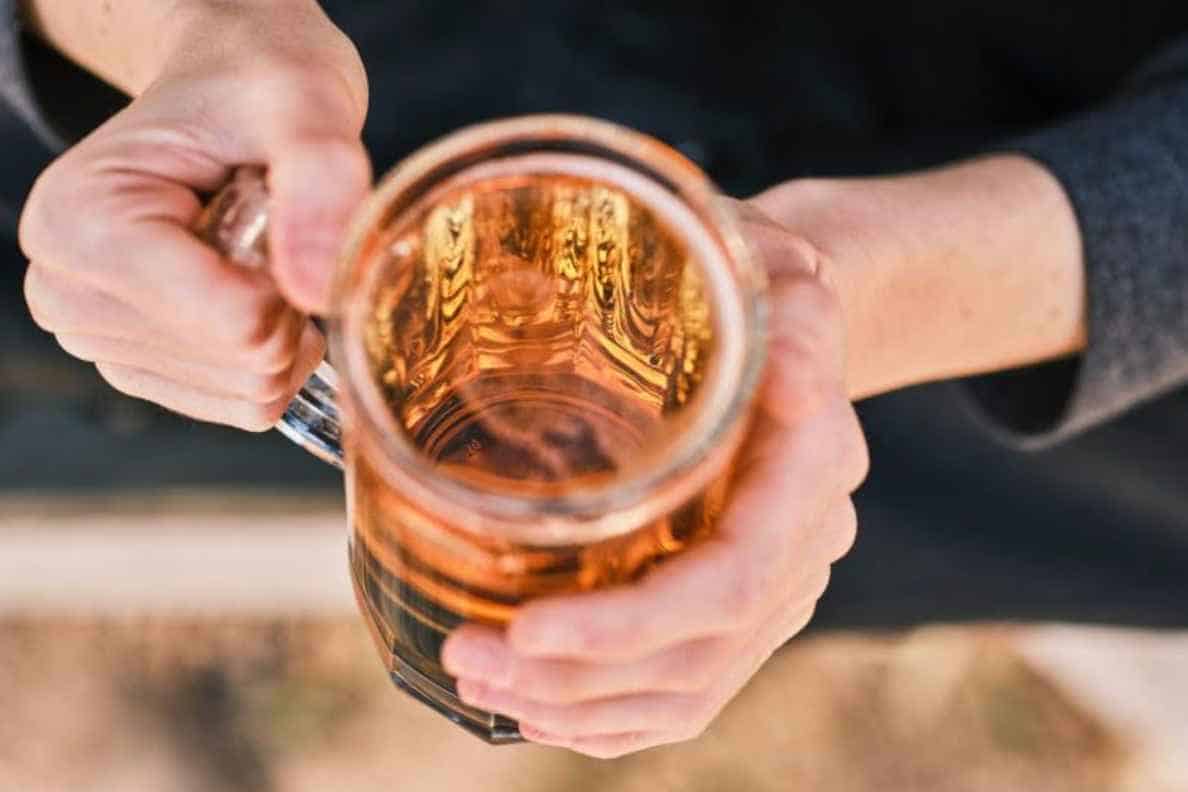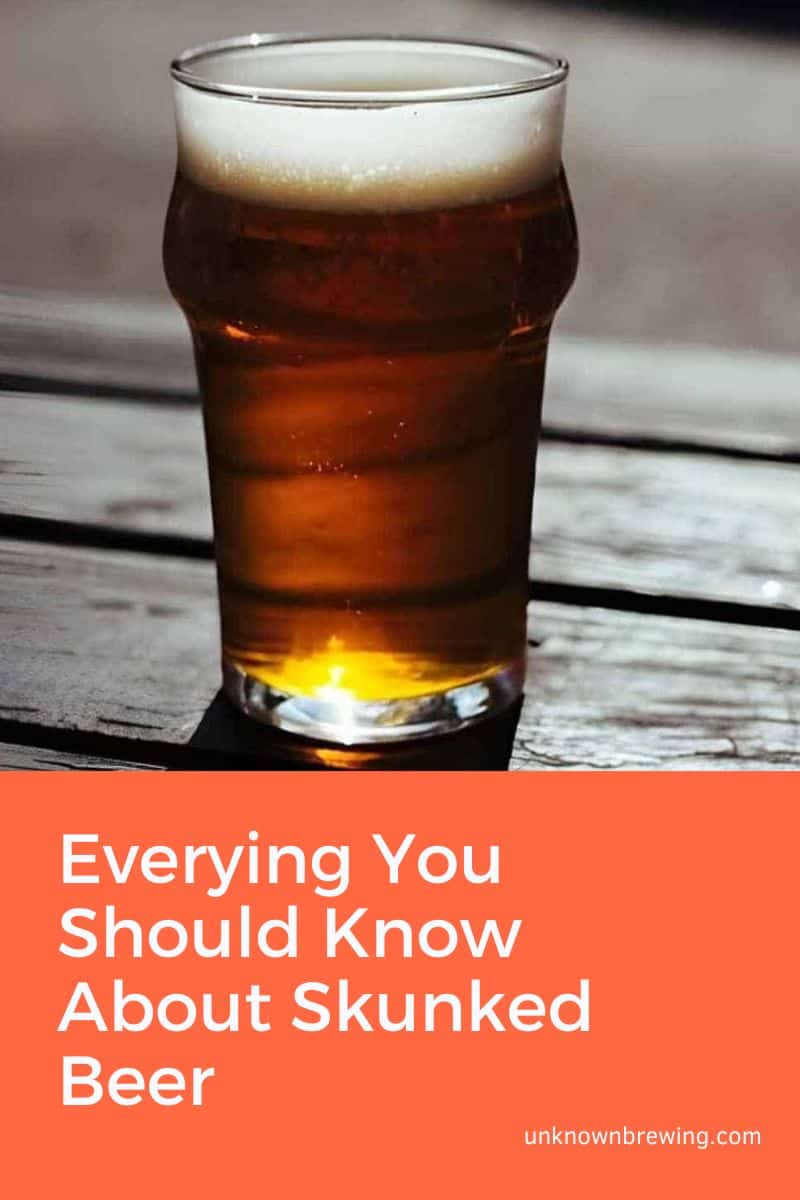Each brewery puts its freshly brewed beer in different containers. Some use bottles and cans, while some take advantage of kegs. Do you ever wonder why they do this? If yes, keep on reading!
Actually, there are a lot of reasons behind it. It could be the cost and the appearance to make it appealing to buyers. But, more than that, beers are contained differently because of their effect on the quality.
The focus of this blog is to let you know what is skunked beer and how beer gets skunked. As well as its connection to the beer containers we just mentioned above.
What is skunked beer and how does it happen?
Like wine, beers are also sensitive to light. In that sense, skunked beer is a kind of beer that’s been unprotected from sunlight and changed its quality. These beers are also called lightstruck.
A skunk beer develops a foul smell and taste. Hence, most people who unfortunately have these beers don’t want to drink them anymore. It is unpleasant and takes away the idea of enjoying the drinking session.
So, how does beer get skunked? What’s the science behind it?
According to Tapville Social, beer is usually made with the four essential ingredients listed below. Although, the quantity varies depending on the brewery.
- Grains
- Hops
- Yeast
- Water
Now, out of the four ingredients, hops are the most crucial when it comes to skunking beer.
Once hops are boiled and mixed with worts, it releases an iso-alpha acid chemical. These acids are good since they are the sources of bitterness in beer. But, if they are exposed to sunlight, they become the ultimate enemy of the beer.
During this exposure or also called photooxidation, another compound is released. It is a compound called 3-methyl-2-butene-1-thiol or Prenylthiol. This active compound is the reason why beer becomes skunky.
3-methyl-2-butene-1-thiol is a potent flavor compound. A few of these and the flavor and aroma of the beer can already be altered.
How fast does beer get skunked?
Another thing you should understand is how fast light affects the beer! We have two things to consider in this part. The light itself and the container.
Light levels or intensity
Light level is the amount of light that a plane has. The higher the amount of light, the faster the beer will be a skunk.
For example, beers exposed to the sun’s Ultraviolet light will become skunky the fastest. 30 minutes is enough to make your beer go bad when exposed to sunlight.
Meanwhile, it can survive for a few days or hours if exposed to a typical house or diffused lighting. What a huge time difference, right?
Beer containers
We all know that beers can be bought in cans, glass bottles, and kegs. The container used in beers significantly impacts the beer getting skunked.
Let us start with kegs. Kegs are the most secure beer container, mainly because most of these are made with aluminum. Using its tap, people won’t even need to open the whole keg anymore, which means lesser exposure to light.
Canned beers are also immune to getting skunk. For the same reason as kegs, light cannot penetrate the cans. However, it would be great to cover it again once you open the lid to avoid light exposure.
Lastly, bottled beers– are the most susceptible ones. Glass bottles are really not helpful in preventing skunk unless they are opaque.
If you have yet to observe, the colors of beer bottlers vary. Some are in transparent, blue, green, or brown colors. Green and brown are the most used by breweries.
Beers in clear bottles are the fastest (about 30 seconds) to get skunky. While the brown ones are the slowest. Often, they don’t even get skunk at all.
Is skunk beer safe to drink?
Skunk beers are safe; just don’t drink them too much! The only difference between a skunk and a regular beer is its taste and smell. A skunk beer usually has a strong burning rubber quality. One thing that people definitely hate.
In that sense, the only reason why most people don’t drink their skunked beer is due to the off-flavor and scent. Not because they are unhealthy.
Actually, skunked beers are often unidentified by people. Especially those that are drinking bottled beer than other kinds. They do not know what it really smells and tastes like, so they are consuming it unknowingly.
See? Those people are not endangered by skunked beers. As of this writing, there are no incidents that tell otherwise.
Again, if you can tolerate the skunky flavor of beer, it is okay to drink it. But if you can’t, the only thing you can do is contact the seller.
You can always contact the brewery and ask for refunds, replacements, or coupons. Frequently, they do that as part of customer care. If this is a hassle for you, sadly, there’s nothing you can do but put it in the trash.
Technically, you cannot retract the effect of photooxidation.
4 tips to avoid having skunked beer
We compiled some techniques to avoid your beer getting skunked or buying one. Let’s discuss them briefly but thoroughly!
Proper storage
Proper storage is critical! If you need to learn how this guide could help you.
Basically, it would help if you focused on the temperature, the position of the beer, and the lighting. But since we are talking about skunk beer, let’s only focus on the latter.
The light wavelength that could trigger the photooxidation in beer is between 350 to 550 nanometers. Any kind of light, artificial or natural, under this range would skunk the beer.
Make sure not to skunk your beer by exposing it to light!
Buy it in opaque bottles
If you are going to purchase bottled beer, be sure to prioritize those that are in opaque or brown bottles. These are the ideal protection against light.
Here are ten brands that offer brown-bottled beers.
- Budweiser
- Coors
- Miller (Lite)
- Heineken (Dark lager)
- Bud light
- Guinness (Extra stout)
- Samuel Addams
- Natural light
- Busch light
- Godfather
Cans and kegs are also a good option
Purchasing beers in cans or kegs is the safest way to prevent skunked beer. These containers automatically stop light exposure.
However, these kinds might be more expensive than bottled beers.
Choose the ones in the shade
If you are in the beer store, always buy the beer in the shade. This way, you’ll be sure they are not yet exposed to light.
Suppose all the beers are in the refrigerator, and you have no choice but to get one in there. In that case, it is better to choose only the ones less exposed to the refrigerator or freezer light.
Frequently asked questions
Does opened beer get skunked too?
Yes, opened beer gets skunked as well. In fact, these are the most susceptible to light because these bottles are already open.
So, if you are drinking your beer in broad daylight. Be sure to protect it from light by covering it. Using beer glasses when drinking is also a tip. Just pour ample beer into the glass and leave the leftovers from the container in the shady area.
Does temperature change make beer skunky?
No, the temperature is not one of the reasons why beer gets skunky. This is one of the beliefs that people should debunk.
Although sudden changes in temperature could also damage the quality of the beer, it is not as severe as skunking. So, enough with the fear of getting your beer in and out of the refrigerator.
Again, light alone is the factor for the unfortunate beer skunking!
Does skunk beer lose alcohol?
The answer to this question is, again, no. The only thing that changes in a skunk beer is its taste and smell.
The alcohol content of beer will always be the same as written in the bottle, even if it is skunked.
Does LED make the beer skunk?
Light-emitting diodes or LEDs are customary nowadays. But, people are unsure if the light from these could skunk the beer.
Well, LEDs have a wavelength of 275 to 950 nanometers. Hence makes it qualified in light skunking standard. Its effect is worse than halogen and incandescent light.
Final words
We, humans, get damaged by the effect of UV rays and other artificial lights. From our eyes to our sensitive skin, its results vary. The same thing happens to beers; they become skunky.
Nevertheless, one thing is sure about all of this. Beers can also escape skunking like humans, who can apply sunscreen to prevent damage. Hide it from light and do the tips we mentioned; your beer is already safe.
We hope this guide about what is skunked beer and how beer gets skunked helped you.

As a homebrewer, Michael would get frustrated about the lack of brewing information on the internet. After hundreds of gallons of spoilt batches, Micheal had enough. And he founded Unknown Brewing as a resource for homebrewers.
